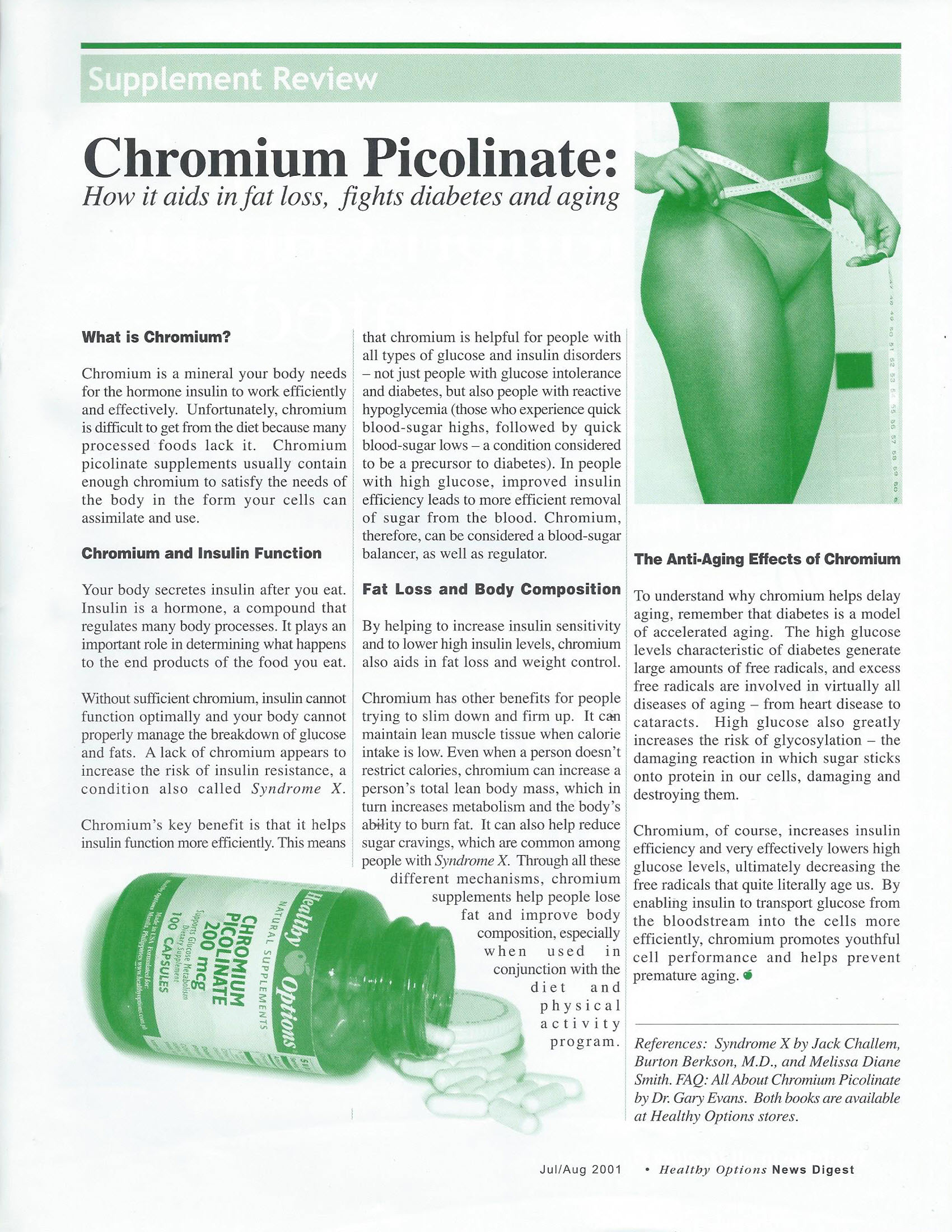

Side effects can include reducing the sugar-lowering effect of insulin, stomach irritation, itching and reddening of the skin. FDA concludes, however, that the existence of such a relationship between chromium picolinate and either insulin resistance or type 2 diabetes is highly uncertain," the agency says.Ĭhromium from food is generally considered safe, but high-dose supplements can have consequences, according to Mount Sinai.

"One small study suggests that chromium picolinate may reduce the risk of insulin resistance, and therefore possibly may reduce the risk of type 2 diabetes.

Food and Drug Administration allows only the following health claim for chromium picolinate dietary supplements: So for most people, supplemental chromium is unnecessary. Most people are getting a sufficient amount of chromium from their diet, according to study published in the Journal of Trace Elements in Medicine and Biology. These uses, however, remain unproven.Ī recent study in the journal Clinical Nutrition Research found that among people with type 2 diabetes, chromium supplements had no effect on weight or blood sugar levels, but did have a small benefit in improving lipid levels and insulin resistance. Low chromium levels can increase blood sugar, triglycerides and cholesterol levels, and increase the risk for diabetes and heart disease, according to Mount Sinai.Ĭhromium supplements have also been seen as helpful in reducing obesity, building muscle, lowering blood pressure and fighting depression.


 0 kommentar(er)
0 kommentar(er)
